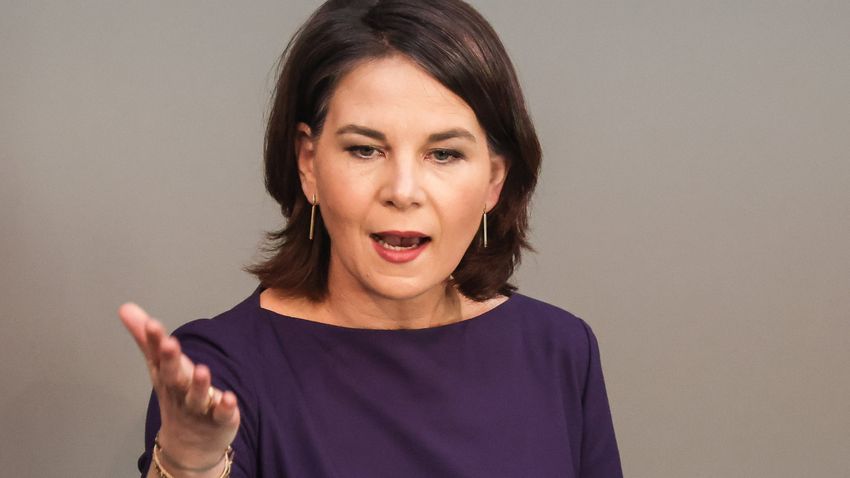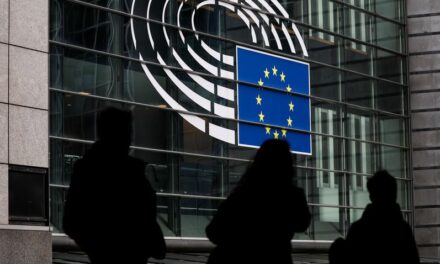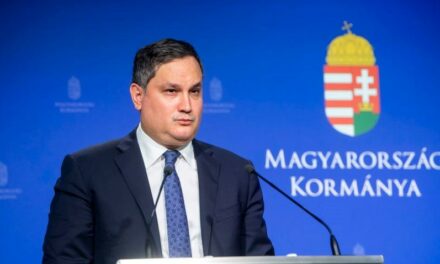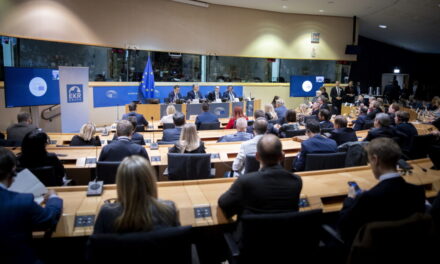"They are afraid" was published on the German t-online website , which is more than surprising, as it is rare to find such an openly critical tone in Germany.
The criticism was clearly aimed at the Ampel coalition (the governing "lamp coalition"), including the so-called Schuldenbrems, i.e. the debt brake, and specifically a statement by the Minister of Foreign Affairs.
The author does not deny that good politics is complicated, especially in times of accumulated crises. In the debate on the budget draft and in every round of it, it became more and more clear what it means when politicians deliberately limit their room for maneuver with a debt brake.
In terms of measures, it's a painful either-or.
How painful it is and how powerless the members of the coalition are was shown precisely by the debate on the support provided to Ukraine. On Friday evening, Foreign Minister Annalena Baerbock had to explain an either-or that could hardly be more unpleasant.
In a conversation, he was confronted with the fact that the governing parties had just decided on another 700 million euros in aid for Ukraine, while many families did not have time for a vacation due to high inflation.
All Baerbock could think of was to warn against the aid provided to Ukraine and the suffering there being played off against social benefits in Germany.
"This is of no use to anyone here in Germany who has little money," he said, "and it would be a mockery of the people of Ukraine."
In fact, with this sentence, he is the one who plays one against the other. The conclusion is much more obvious that both should be possible for rich Germany: vacations and aid to Ukraine.
And lo and behold, this is the sore point of the Ampel coalition.
Baerbock knows all this very well, which is why he resorted to this moralizing, diverting maneuver. Because either-or is actually not without alternatives. In recent years, the politicians themselves have shown how much room for maneuver the debt brake provides with their various "shadow budgets", that is, their budget proposals.
Economic historian Adam Tooze recently said that the debt brake is actually politics' fear of freedom. By this he referred to the freedom to decide whether debt is dangerous or necessary.
"I would say the debt brake is politics' fear of itself," Tooze said. - Namely, the fear of not being able to handle money. And so the debt brake is also an escape from responsibility: unfortunately we couldn't do more, but we are not to blame, the debt brake did."
And there is truth in that.
On the other hand, it could certainly be argued whether the politicians' fear of themselves is not justified. Because if fear remains, it is also an admission of one's own inadequacy.
But all this is simply not enough at the moment.
A better policy is needed - says the article - A more confident, braver policy. For a policy that does not look at public opinion polls, but uses the power it has been given for four years.
Because "we are not asking for a policy that only tells us nice stories!"
- concludes the author.
It is clear how much tension has accumulated in German public life and politics.
The German "Talfahrt" (perhaps we could call it a plummeting flight in Hungarian) clearly shows how baseless the accusations of the Hungarian opposition are against the economic policy of the domestic conservative government. Because the same can already be felt - and it can be felt very much! – in German public life and in everyday life.
So what Ferenc Gyurcsány answered on July 10 to the ATV reporter's question, "is it not possible that the external, European crisis is showing its effects in Hungary?" is not true.
He then replied to the retired ex-prime minister: "No. Because what we have here is the Orbán crisis and inflation caused by the government..."
But see, Bebermeier's article also highlights that this is just a political slogan, nothing more.
(TTG)
Featured image: Photo: MTI/EPA/Filip Singer













